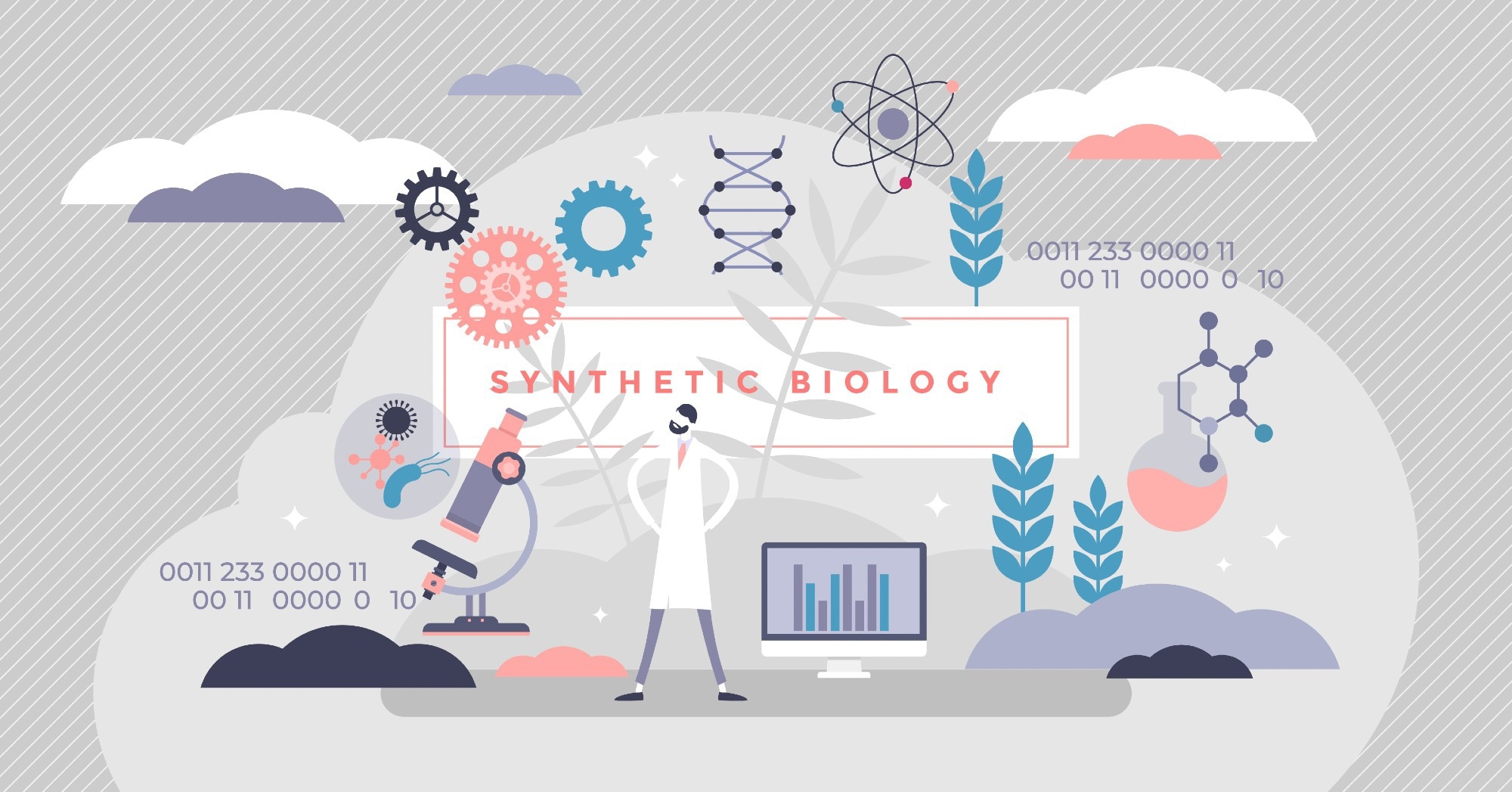What is synthetic biology?
Synthetic biology is a field that combines biotechnology, genetics, and biological systems to redesign organisms and engineer features that increases their usefulness for a particular purpose and aim. This field has recently increased exponentially due to the greater understanding of genomes and genetic engineering, consequently leading to decreased costs associated with genome sequencing.
Synthetic biology builds on the field of genetic engineering that involves the transfer of individual genes from one cell to another; synthetic biology aims to design full genetic systems that can perform self-regulated tasks when integrated into an organism. This is a young field that promises to transform multiple sectors such as health, energy, manufacturing, and more.

Image Credit: VectorMine/Shutterstock.com
Applications of Synthetic Biology
The applications of synthetic biology are numerous, especially in the field of healthcare. This includes the direct and indirect involvement of synthetic biology and its techniques to revolutionize medicine.
A successful and transformational example of synthetic biology is the formation of CAR-T cells for cancer treatment. CAR-T cell therapy involves patients' own T-cells being engineered to recognize and target antigens that are expressed by tumor cells; this then results in the activation of the local immune response. This is a clinically significant example of how the strategies and techniques of synthetic biology are applied to redesign the T-cell to enhance its usefulness.
Genetic manipulation is the most visible manifestation of the role of synthetic biology. Genetic diseases caused by mutations in the human genome is an area that has seen minimal progress with no cure or treatment other than gene therapy. Synthetic biology is an area that opens opportunities for tackling these diseases. An engineered virus is rapidly being adopted as the vector of choice to introduce genes to correct defective genes, such as those in Severe Combined Immune Deficiency (SCID).
Synthetic biology is also being studied for innovative diagnostics techniques through biosensors. Escherichia coli bacterial cells have been studied by multiple groups and manipulated to detect various changes when introduced into the body, such as inflammation or the presence of other pathogenic bacteria. These engineered E. coli cells record and send this information through various methods, such as via radio waves to electronic devices outside the body. These studies have been successful in pigs but have yet to be tested in humans, but the potential is vast. This real-time diagnostic method could potentially alter how diseases are treated and prevent various exacerbations of diseases.
Other therapeutic strategies for synthetic biology include engineering bacterial states that can identify diseased cells and release a drug. An example is engineering Salmonella typhimurium bacteria to identify hypoxia and release cytolysin protein HlyE; this has proven to reduce tumor size when tested in vivo. S.typhimurium has been previously trialed to treat various cancers due to the properties that allow it to colonize tumor microenvironments. Utilizing these bacteria properties and then manipulating their genetic properties and system to function autonomously in treating cancer.

Image Credit: Yurchanka Siarhei/Shutterstock.com
Key Challenges in Synthetic Biology
The potential of synthetic biology is vast; however, there are also many challenges in fully integrating synthetic biology into healthcare and utilizing its' features. The main concern with small molecules synthetically engineered is that it is not scalable and, therefore, cannot be mass-produced as a treatment option.
A source of the slow progress of synthetic biology is the requirement of different technologies to work synchronously to achieve a joint object, and this is a challenge when some develop at a faster rate than others. DNA sequencing technologies are well ahead of DNA synthesis technologies resulting in a slow progression from when the human genome was mapped to when the first synthetic genome was created a decade later. This also applies to other technologies relevant to synthetic biology, such as artificial intelligence and scale-up bioprocesses.
Additionally, the bacteria and microbes currently being studied and modified are a very small amount of the total biodiversity. To make optimal use of natural microbiology, there needs to be more understanding of the microbial species and their natural features that make them more suited for certain chemical reactions or modifications. An alternative to the impact of different host chassis on the synthetic modification would be a universal synthetic expression system on which new synthesis can be tested. This would be beneficial as it reduces the need for organism-specific technologies.
Synthetic biology is a field in its infancy and clearly shows the potential of drastically changing healthcare in different ways. We are surrounded by biology in the form of viruses and bacteria, and synthetic biology allows us to use and manipulate their natural properties to further healthcare. Synthetic biology has played a crucial role in Car-T cells and continues to be the source of much development and progress where cancer is concerned. However, cancer is one small example, and the potential of synthetic biology in gene therapy treatment of genetic diseases and its role in diagnostics is vast and is only scratching the surface.
Further Reading
Last Updated: Jun 30, 2022